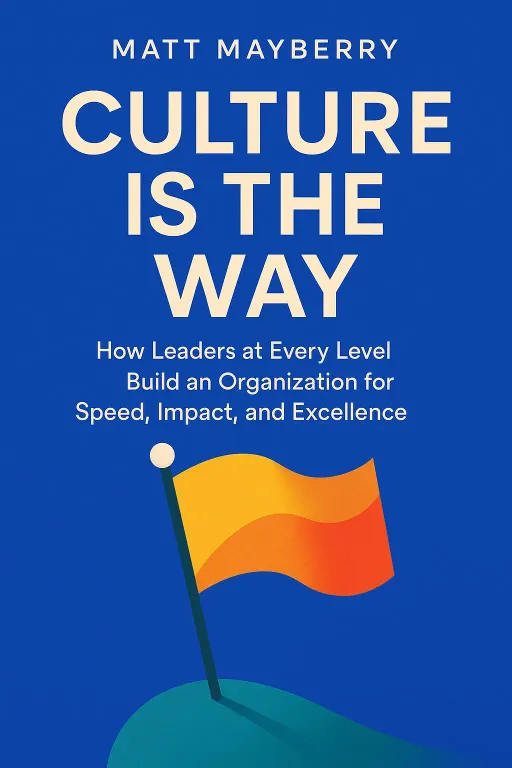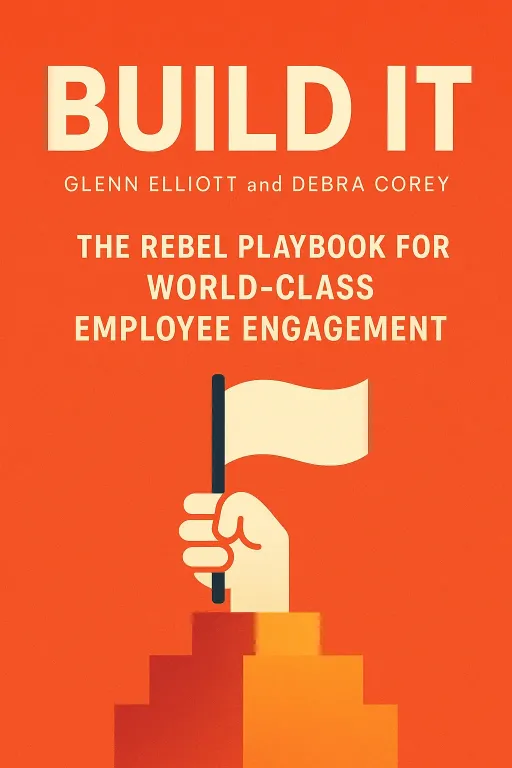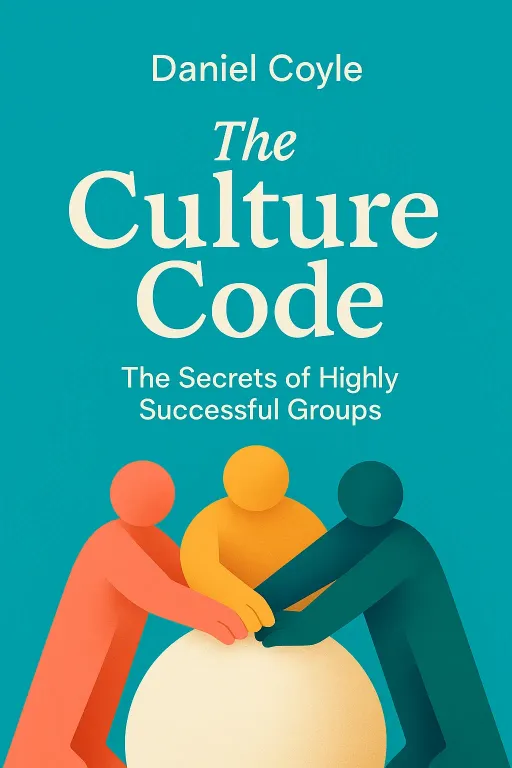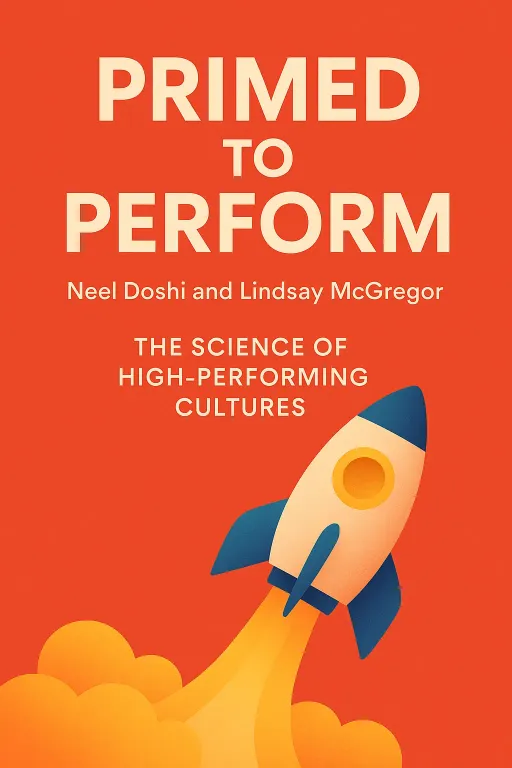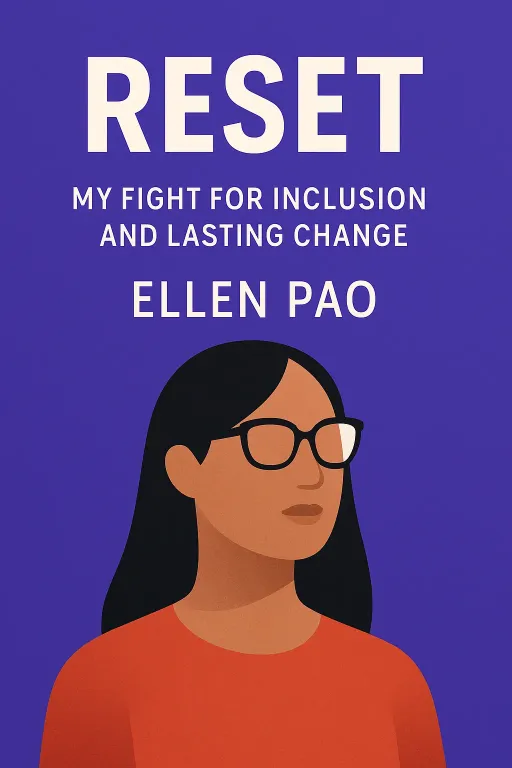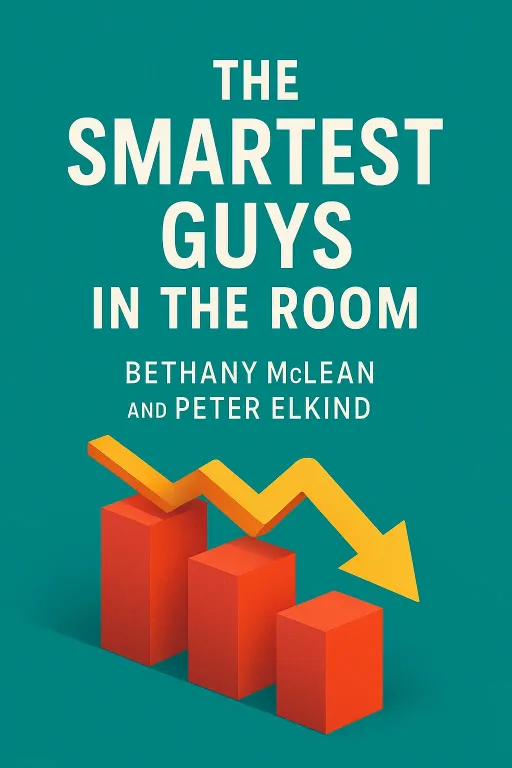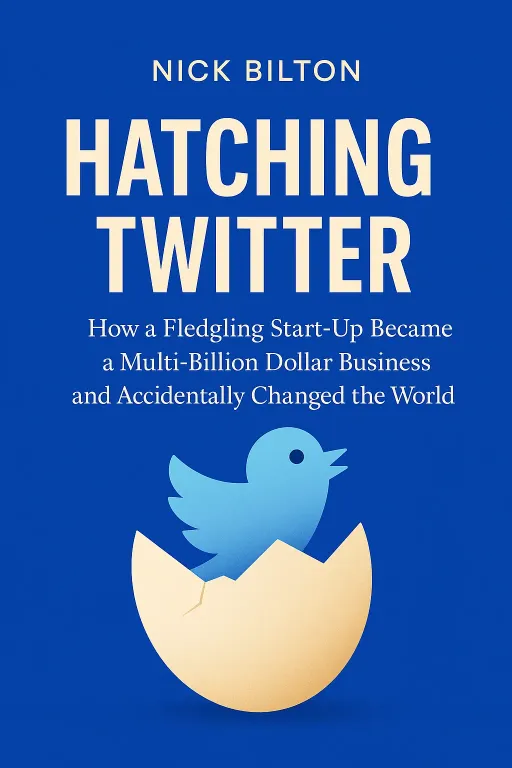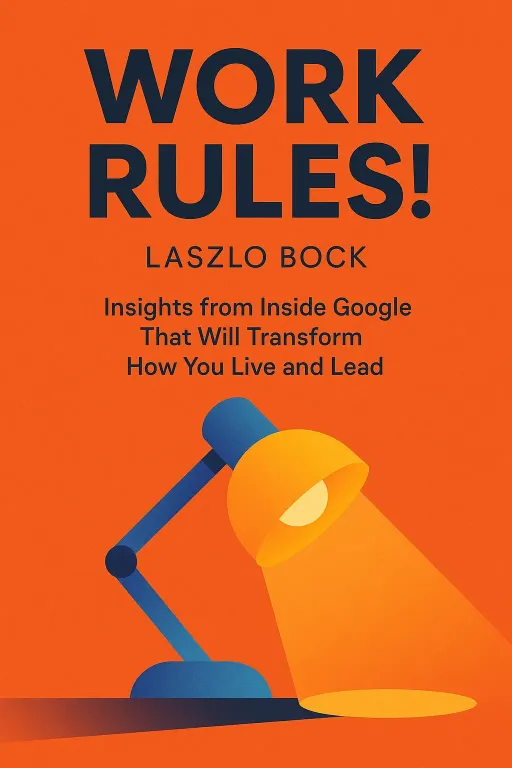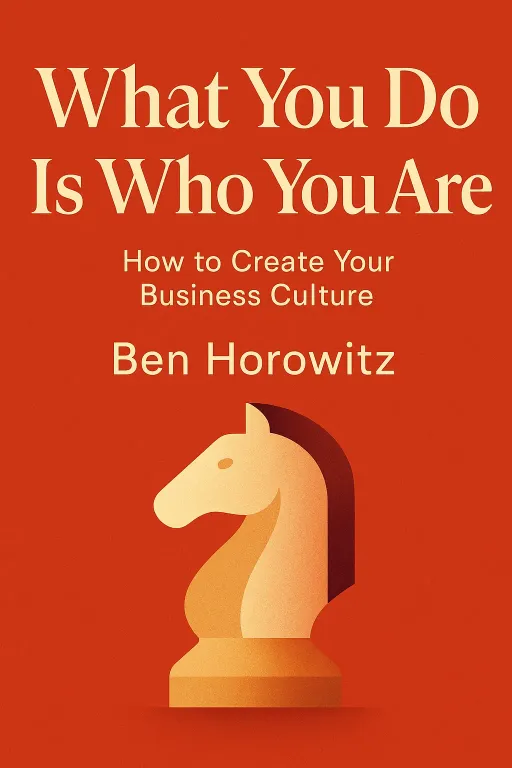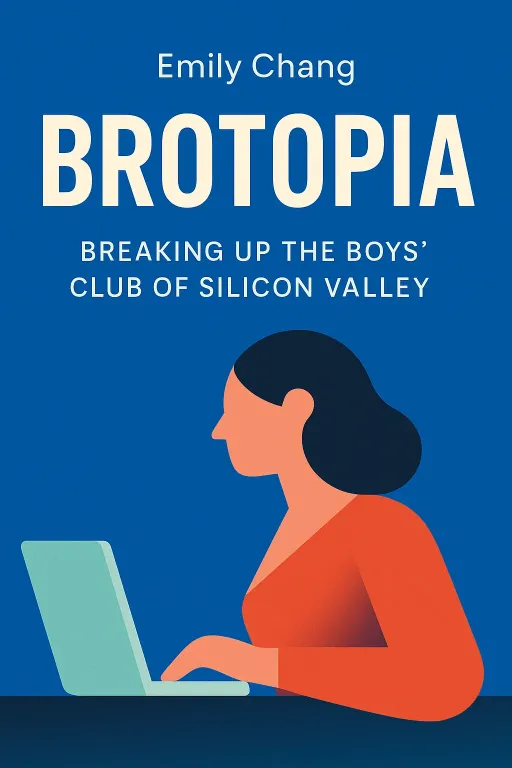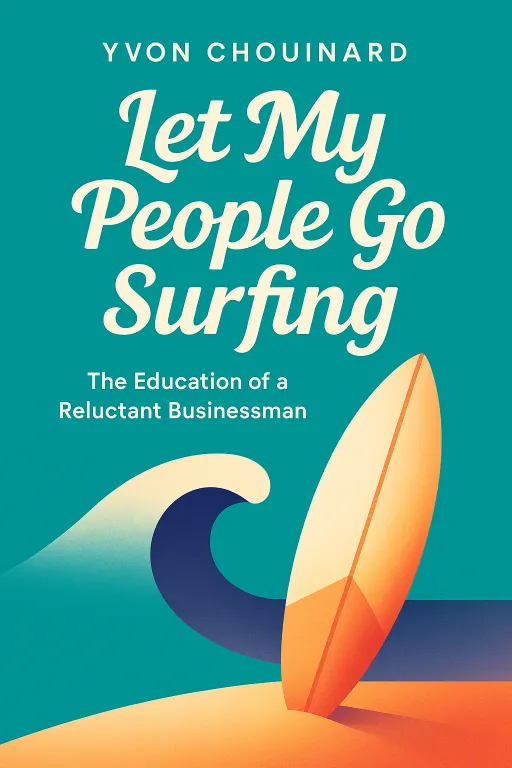
The Reluctant Billionaire
13 minThe Education of a Reluctant Businessman
Golden Hook & Introduction
SECTION
Michelle: What if the best way to build a wildly successful, nearly billion-dollar company is to actively not want to be a businessman? To see entrepreneurship not as a path to riches, but as a form of rebellion, like a juvenile delinquent saying, "This sucks. I'm going to do my own thing." Mark: That's the provocative idea at the heart of Let My People Go Surfing by Yvon Chouinard, the founder of Patagonia. It's a book that's less a business manual and more a philosophical guide to living an examined life, where work, play, and responsibility are inseparable. It’s one of those rare books that was originally written as an internal handbook for employees and became so popular he had to publish it for everyone. Michelle: Exactly. And today, we're going to unpack this from three powerful angles. First, we'll explore Chouinard's identity as the 'Reluctant Businessman' and how his obsession with craft built an empire. Mark: Then, we'll dive into his radical 'Management by Absence' philosophy—the idea that you strengthen a company by intentionally stressing it, much like an ecosystem. Michelle: And finally, we'll look at how Patagonia turned environmental responsibility into its most powerful—and profitable—asset, proving that doing good can be great for business.
The Reluctant Businessman: Craftsmanship Over Corporation
SECTION
Michelle: So let's start with that core identity. Chouinard is adamant. He says, "I had always avoided thinking of myself as a businessman. I was a climber, a surfer, a kayaker, a skier, and a blacksmith." The business was almost an accident, a byproduct of his passion. Mark: It’s a complete inversion of the typical startup story. Most founders start with a market opportunity or a business model. Chouinard started with a problem he had himself: the climbing gear available in the 1950s was terrible. The pitons—those metal spikes you hammer into rock—were soft, single-use, and imported. So, he taught himself how to be a blacksmith, bought a used coal-fired forge, and started making his own reusable, hardened steel pitons. Michelle: And he wasn't thinking about scale or profit margins. He was making them for himself and his friends, selling them out of the back of his car for a dollar fifty apiece. He was just a craftsman making better tools. But this commitment to quality had an unintended consequence: he accidentally cornered the market. His gear was so superior that he soon had 75% of the climbing hardware market in the U.S. Mark: But this is where the story takes its first radical turn. This is the moment that defines the entire Patagonia philosophy. As climbing became more popular, Chouinard realized his own invention, the hard steel pitons, were destroying the very mountains he loved. The constant hammering and removal was scarring the rock faces of places like Yosemite. Michelle: A normal businessman would see this as someone else's problem. Or maybe a PR issue to manage. But Chouinard, the craftsman and climber, saw it as a flaw in his own product. The "best" product can't be one that destroys its own playground. So, in 1972, he makes an absolutely insane business decision. Mark: Truly insane. He decides to phase out pitons, his cash-cow product. And to do it, he dedicates the first few pages of his own Chouinard Equipment catalog to an essay on "Clean Climbing." He introduces an alternative—aluminum chocks that can be wedged into cracks without a hammer—and essentially tells his entire customer base to stop buying his best-selling product and adopt this new, less harmful ethic. Michelle: The result was immediate and catastrophic from a purely financial perspective. His piton business, the foundation of his company, evaporated almost overnight. But his credibility skyrocketed. The climbing community saw that he was willing to sacrifice profit for principle. His new chock business exploded, and the "Clean Climbing" essay became legendary. It wasn't a marketing ploy; it was an authentic act from a craftsman protecting his workshop—the natural world. Mark: And that sets the stage for everything that follows. It establishes the first rule of Patagonia: "Make the best product, period." But for Chouinard, the definition of "best" is incredibly broad. It's not just about performance. It has to be functional, durable, simple, beautiful, and, most importantly, it must cause no unnecessary harm. That single decision in 1972 is the DNA of the entire company today. It’s the reason they tell you to repair your jacket instead of buying a new one. It’s not a gimmick; it’s the original founding principle. Michelle: It’s this idea he quotes from Antoine de Saint-Exupéry: "In anything at all, perfection is finally attained not when there is no longer anything to add, but when there is no longer anything to take away." It's about stripping things down to their naked, functional essence. That’s the craftsman's mindset, not the businessman's. Mark: Right. A businessman adds features to justify a higher price point. A craftsman removes everything that isn't essential to solve the problem. And that philosophy of risk, of trusting the process over the immediate goal, isn't just in his products. It's deeply embedded in how he manages people.
Management by Absence: The Zen of Letting Go
SECTION
Michelle: Which brings us to this wild idea of 'Management by Absence.' Chouinard is famous for his long trips away from the company, whether he's fly-fishing in Kamchatka or surfing in the South Pacific. He explicitly tells his team not to contact him. Mark: And again, from a conventional MBA perspective, this is heresy. The leader is supposed to be at the helm, steering the ship. But Chouinard sees it differently. He quotes Charles Darwin: "It is not the strongest of the species that survives, nor the most intelligent, but the one most responsive to change." He believes a company, like an ecosystem, needs stress to evolve. Michelle: He learned this the hard way during a crisis in 1991. After years of explosive 30-50% growth, Patagonia had become bloated. They had too many product lines, too much complexity. Then a recession hit, and it nearly broke them. They had to lay off 120 employees, which was about 20% of their workforce. It was a traumatic moment. Mark: So what does the CEO do in the middle of this existential crisis? He doesn't lock himself in a boardroom with spreadsheets. He takes his top managers on a "walkabout" to the actual region of Patagonia in Argentina. He forces them out of the crisis bubble to reflect on a fundamental question: "Why are we in business?" Michelle: It was on that trip that they solidified their mission statement and philosophies. The crisis became a catalyst. Mark, you mentioned this before, it’s like his mountain climbing analogy. He says, "How you climb a mountain is more important than reaching the top." For him, the struggle, the process, is where the real growth happens. Mark: Exactly. He believes that if he, as the founder, is the only one who can solve the big problems, the company is fundamentally weak. It creates a dependency that makes it fragile. His absence is a form of intentional stress. It forces the team to develop its own problem-solving muscles. It empowers them. It’s the ultimate act of trust. Michelle: This trust is built into the company's culture. The famous "Let My People Go Surfing" policy is a perfect example. If the surf is good, employees are encouraged to go. The deal is, you get your work done, but they trust you to manage your own time. They hire what Chouinard calls "independent-minded people," people who might be considered "unemployable" in a normal corporate structure because they question authority. Mark: Because you can't order those people around. You have to lead them with a shared mission. You have to build consensus. It’s a system that runs on trust, not on rules. His so-called MBA, Management by Absence, is as much a sign of his trust in them as it is his desire to be out fishing. He’s creating a resilient, self-regulating system, not a rigid, top-down hierarchy. Michelle: And that resilience, that trust in his people and his process, allowed him to make what is probably his most radical business decision ever—one that perfectly combines his product philosophy with his deep-seated environmentalism.
The Business of Saving the Planet: Profit as a Byproduct
SECTION
Mark: This is where it all comes together. If the first principle is "make the best product" and the second is "cause no unnecessary harm," what happens when you discover your products are causing immense harm? Michelle: That’s exactly what happened in the early 90s. Patagonia did an internal environmental audit of their four main fibers: wool, polyester, nylon, and cotton. They assumed the synthetic fibers would be the worst offenders. But the results were shocking. The most damaging fiber, by far, was conventionally grown cotton. Mark: The "pure, natural" fiber. Michelle: Right. They learned that conventional cotton, grown on less than 3% of the world's farmland, was responsible for 10% of all agricultural chemicals and a staggering 25% of all pesticide use worldwide. The stuff was toxic from field to fabric. Chouinard was horrified. He felt they were hypocrites. Mark: So, once again, he makes a decision that seems like business suicide. He declares that by 1996—just two years away—Patagonia will switch to 100% organically grown cotton for its entire sportswear line. Michelle: The challenge was immense. At the time, organic cotton was a tiny, fragmented industry. There wasn't nearly enough supply. Their own suppliers told them it was impossible. The quality wasn't there, the costs were much higher. But Chouinard and his team mobilized the entire company. It was another self-imposed crisis. They worked directly with the few organic farmers that existed, helped create new supply chains, and completely re-engineered their products. Mark: And what was the result? Did they go bankrupt? Michelle: Quite the opposite. The first year, sales were tough. The organic cotton products were more expensive and didn't have the same bright white look as the chemically-treated cotton. But they used their catalogs and stores to educate their customers, to tell the story of why they made the change. And their customers responded. They didn't just buy a shirt; they bought into the philosophy. Within a few years, the organic cotton line was a massive success and it spurred a huge growth in the organic cotton industry itself. Mark: It’s the perfect example of his financial philosophy. He says making a profit is not the goal. Profit is what happens "when you do everything else right." He sees it as a vote of confidence from your customers. They’re not just approving of your product; they’re approving of your actions. Michelle: He has another great story about this. They used to package their thermal underwear with these thick cardboard headers inside heavy plastic bags. They decided to eliminate the packaging entirely. For the heavier-weight stuff, they just hung it on the rack like a shirt. For the lighter stuff, they just rolled it up with a rubber band. Their sales team warned them to expect a 30% drop in sales. Mark: And what happened? Michelle: Sales went up 25%. And they saved $150,000 in packaging costs and kept 12 tons of material out of landfills in the first year. It turned out that when customers could actually feel the quality of the fabric, they were more likely to buy it. Once again, doing the right thing for the environment turned out to be the most profitable thing. Mark: This all culminates in their famous "Don't Buy This Jacket" ad campaign, which they ran on Black Friday. It's the ultimate expression of this entire philosophy. It’s an ad that tells you to think twice before consuming, to repair what you have, to buy used. It’s a company actively trying to reduce consumption of its own products. Michelle: Because they believe their real product isn't the jacket. Their real product is the idea of responsibility. The idea of less but better.
Synthesis & Takeaways
SECTION
Mark: So when you pull it all together, you have this beautiful, coherent philosophy. It starts with the craftsman's obsession: make the best thing possible, and "best" includes being responsible. That leads to a management style built on trust and intentional stress, because you need independent, resilient people to achieve that mission. And all of that results in a business where profit is simply the proof that you're on the right track. Michelle: It’s a model that challenges the very core of modern capitalism, which so often prioritizes short-term profit and endless growth above all else. Chouinard wants Patagonia to be a 100-year company, and to do that, you have to think like an ecosystem, not a quarterly report. Mark: And he leaves us with a very powerful, and frankly, very uncomfortable, final thought. He quotes Dante, saying that the hottest places in hell are reserved for those who in times of great moral crisis maintain their neutrality. Michelle: He then defines his own version of this. He says, "Evil doesn't have to be an overt act; it can be merely the absence of good. If you have the ability, the resources, and the opportunity to do good and you do nothing, that can be evil." So, the question he leaves for all of us, in our work and in our lives, isn't just what we're doing, but what good are we not doing? It's a challenging thought to end on, and one that really sticks with you.
